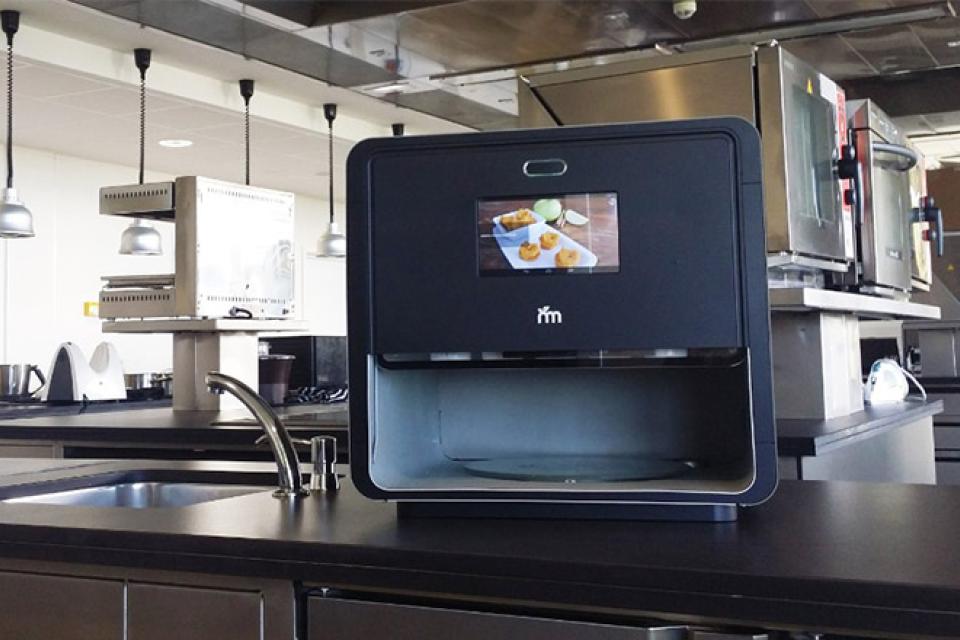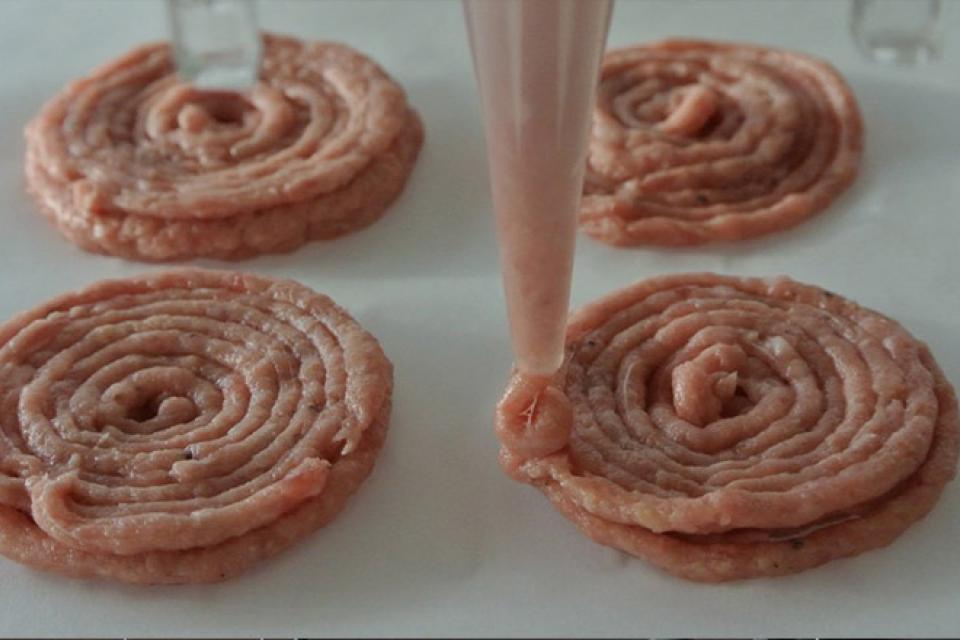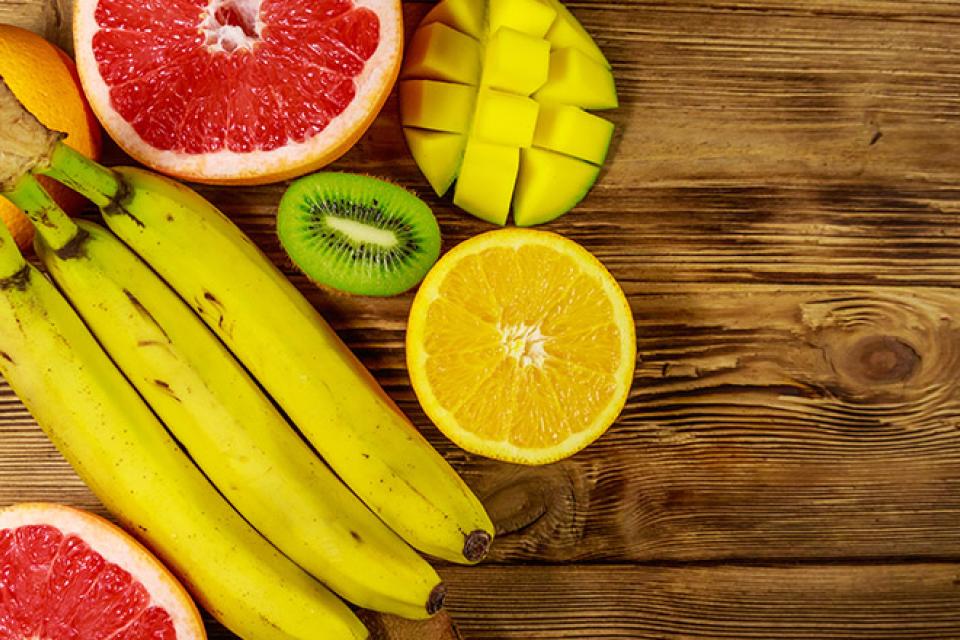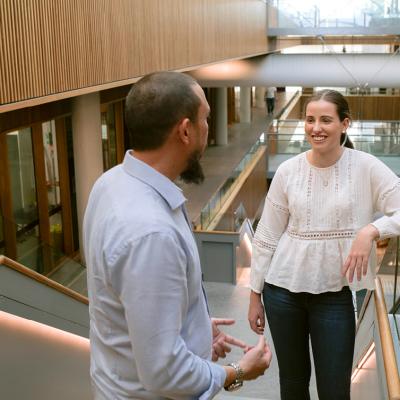Why study food science and technology? Well, it’s not just a delicious and exciting field to work in – you can also help solve some of the biggest food problems facing the world. Discover how you can create change with a food science career in Australia.
Careers in food science and nutrition are ideal for anyone interested in taking a scientific approach to the study of food and its consumption.
In The University of Queensland’s food science courses, you’ll study all aspects of the food system including:
- farming, processing and distribution
- how food is selected and consumed
- how it affects our health.
Innovation in the world of food can often go unnoticed, but we’ve collected a few examples of game-changing UQ research projects that will potentially revolutionise how we prepare and eat food. Featuring robotic, health and chemical solutions for some of our most pressing food issues, these projects showcase the diverse range of innovative, future-focused research opportunities available to academics and professionals in our food science programs.
So, if you’re not sure what to do with a food science degree, prepare to be inspired.
3D food printing
Professor Bhesh Bhandari and Dr Sangeeta Prakash’s research on the 3D printing of food is helping usher in the next generation of food – simply prepared at the press of a button.

The commercially available Foodini machine lets you 3D print your dinner. Image credit: Foodini.
“Here at The University of Queensland’s School of Agriculture and Food Sustainability, we’re focusing on achieving precise and accurate food printing, while at the same time reviewing the application of 3D printing with food in industry, and investigating trends and challenges faced by 3D food printing,” says Bhesh.
The advantages of 3D printing technology being applied to the food sector include:
- customising food designs
- personalised and digitalised nutrition
- simplifying supply chains
- the ability to broaden the source of food inputs.
“It also allows you to cater for people with differences in both age and ability, such as children or elderly people with swallowing problems,” says Bhesh.
“As an example, we’re able to print meat patties that look just like any other hamburger but are much easier to swallow, offering a real improvement in quality of life for many people.”

Beef getting printed into soft mini burgers. Image credit: Foodini.
“Imagine a world where you can customise not only flavour but nutritional value, helping give people customised foods which match their health needs perfectly. Or you could turn different foods into works of art. You could watch your home appliance create a beautiful sculpture in a matter of seconds. Even our most talented chefs aren’t capable of that.”
- Professor Bhesh Bhandari, UQ School of Agriculture and Food Sustainability

Confectionary printed with the ChefJet Pro 3D printer – just one example of the potential to create edible art with 3D printing. Image credit: TechSmartt.
PERKii probiotic breakthrough
PERKii is the world’s first encapsulated probiotic. It uses UQ’s patented ProGel™ technology to deliver beneficial bacteria safely to the gut, unlocking the full benefit of ‘good-for-gut’ probiotics.
“Until PERKii, probiotics could not survive the trip to the intestine due to the highly acidic environment of the stomach, meaning they would have to be transported via more expensive and inconvenient methods such as via needle or suppository,” says Bhesh.
Developed by researchers at UQ, PERKii and the ProGel technology that makes its revolutionary digestion process possible uses a seaweed derivative that provides protection for a large range of bioactives like:
- probiotics
- omega-3
- supplements
- drug compounds.

PERKii is just one application of UQ’s world-first ProGel encapsulation method, which has the potential to revolutionise gut health on a global scale.
“With ProGel, we could consider the possibility of creating lactose-free foods, as our technology allows calcium to be encapsulated and added to milk and juice. PERKii offers lactose-intolerant people an easy way to digest and benefit from probiotic supplements, thus serving an unmet need in the health-food industry.”
Fruit-ripening powder
Thanks to innovative research from Professor Bhesh Bhandari and a team of UQ researchers, achieving perfectly ripened fruit on cue is that much closer to reality.
Fruit ripening is caused by ethylene, a natural gas generated by fruit, which is currently used to control-ripen fruits such as bananas, mangoes, avocadoes, citrus and tomatoes.

Perfectly ripened fruit on cue may soon be much easier, thanks to research from The University of Queensland.
Bhesh and his team created an ethylene powder from food-grade material in a safe, easy-to-use format, which can ripen fruits both in the kitchen and in large-scale commercial operations.
“The powder dramatically improves the safety, efficiency and effort involved in controlled ripening of fruit, avoiding the risk of highly flammable gas cylinders causing accidents,” says Bhesh.
“This technology is more flexible in its application and can help fight inefficiency within the food system, saving time and money.”
Food science programs at UQ
The University of Queensland is the perfect place to launch your food science career in Australia. We’re ranked 1st nationally and 14th globally in the Global Ranking of Academic Subjects 2021 for food science and technology subjects.
Follow your passion for food to create a rewarding career in one of the world’s largest industries by studying one of UQ’s food science programs:






